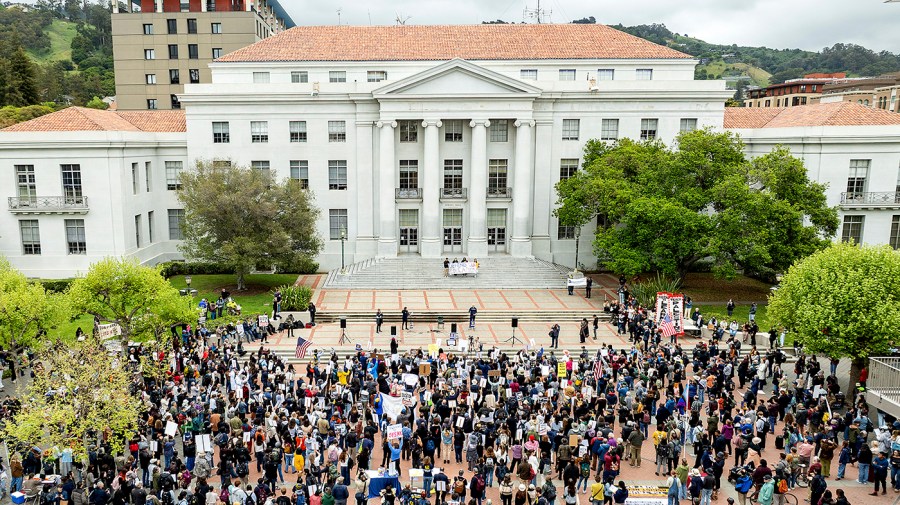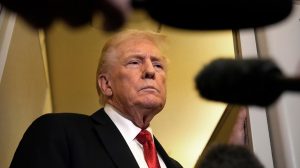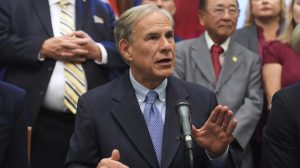Colleges to use summer break to regroup after rough start with Trump

U.S. colleges and universities will have three months to regroup after a brutal beginning to the second Trump administration that included sweeping funding cuts, foreign students arrested and the launch of investigations from multiple federal agencies.
President Trump is living up to his promise of a crusade against higher education, leaving campus administrators struggling for a path forward after watching both defiance, such as in Harvard University’s case, and compliance, as exemplified by Columbia University, result in devastating funding freezes.
School leaders are stuck between a rock and a hard place as they navigate how to keep community trust while also working with the administration when possible. Some experts are advising strength through numbers.
“I don’t think that schools should be attempting to engage in conversations or negotiations with the Trump administration one at a time. I think they have to go in groups. They have to go in coalitions. By coalitions, I mean all eight of the Ivy League universities, for example, all of the Big Ten universities, for example,” said Shaun Harper, a professor of education, business and public policy at the University of Southern California.
“These are the most powerful and the wealthiest universities in the nation. Their alumni are incredibly powerful. These are also schools that have powerhouse sports teams, many of them. … They just have so much muscle that can be collectively flexed. But, again, any one of these schools attempting to go it alone is going to be eaten alive,” Harper added.
That strategy could be building momentum after hundreds of schools, from those in the Ivy League to community colleges, banded together to call for “constructive engagement” in April and denounce attacks on higher education.
Faculty from Big Ten schools are also working to create a “mutual defense compact” that would support institutions that defy the demands of the federal government.
Schools “absolutely should be thinking strategically in both the short and long term about the current effects on higher education and what it means for moving forward in ways that are grounded in the mission, vision and values of their institutions,” said Lynn Pasquerella, president of the American Association of Colleges and Universities.
“You must take this time to reflect, to engage in both retrospective and prospective analysis about how they will respond if these attacks continue, and to communicate clearly with their campuses, with all of their constituents, around what priorities they will put in place,” Pasquerella added.
The Trump administration has also sought to deport numerous international students and faculty under a legal provision that gives the secretary of State the authority to go after foreign-born individuals he believes threaten the foreign policy of the United States. Many of the high-profile cases are students who participated in pro-Palestinian activism on campus.
And several schools are under investigation for policies around transgender athletes, with institutions including the University of Pennsylvania losing funding over the issue, although the school argues its policies match those of the NCAA, which no longer allows transgender women on female sports teams.
Campus Compact, the largest and oldest higher education association, believes “the summer will be about understanding what is in their realms of control, putting plans in place, meeting students and community members where they are, and ensuring they are ready to open the doors in the Fall,” according to Bobbie Laur, the organization’s president.
It will be a time “of close collaboration among colleges and universities, knowledge and resource sharing, and solidarity among higher education institutions,” Laur added.
The quick devastation wrought by Trump has caused some to question the financial relationship between the government and universities, prompting ideas such as schools finding more financial independence.
“The reason why the United States of America has the most advanced research infrastructure in the world is because of its relationship to the federal government, and if we want to stay the most important nation in the world … there is no way forward without the federal government being intimately involved in the support of, not control over, but support of our research infrastructure,” said Todd Wolfson, national president of the American Association of University Professors.
While universities also used last summer to reevaluate their policies around protests after the pro-Palestinian encampments, this task will be even more difficult as Harvard and others have warned the Trump administration’s actions will devastate medical advancements and technological research.
Higher education communities will be watching the multiple lawsuits against the federal government’s actions, including Harvard’s case that has a hearing set for July.
Others emphasize that any negotiations or discussions with the Trump administration should be done as a united front with the agreed upon purpose of not being bullied into any concessions.
“The Trump administration and their approach to higher education is probably the worst and most destructive approach to higher education I’ve ever seen in the history of this country,” said Wolfson.
While he believes there should be conversations with the federal government, university leaders should not “bend the knee” in the talks, “whether it’s confirming rampant antisemitism on campus, which does not exist … or if it means allowing the Trump administration get greater control over what we teach and what our students learn and what we research.”
“If they do that, they are failing higher education and they’re failing this country. So sure, have a conversation, but do not bend to what are nefarious intentions from this administration,” Wolfson concluded.






